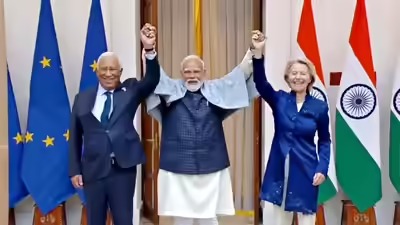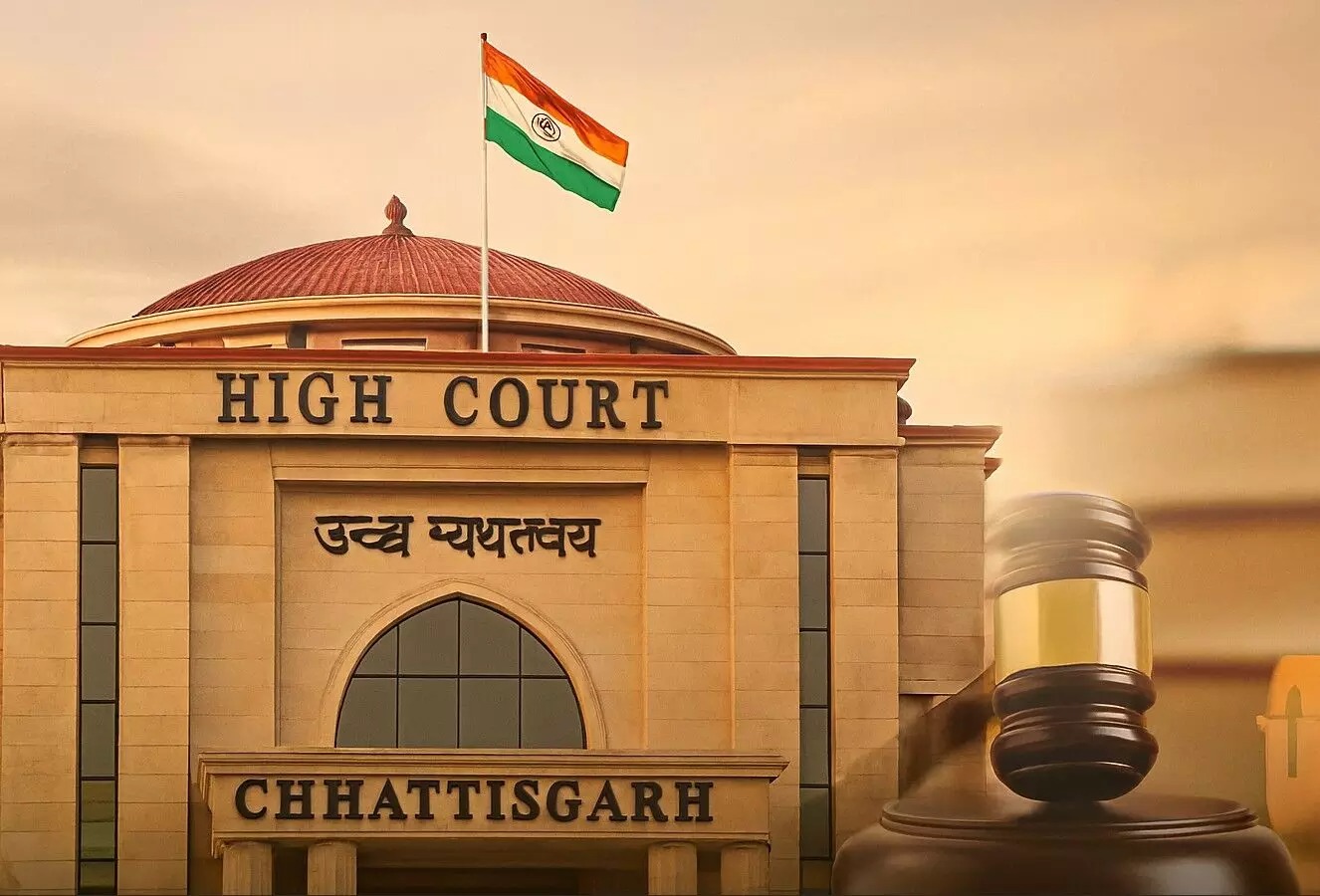L.N. Mittal, J.@mdashThis is second appeal by defendants No. 2 to 4 who have been unsuccessful in both the courts below.
2. Zile Singh respondent No. 1 filed suit against appellants and Parmod Kumar proforma respondent No. 2 (defendant No. 1) alleging that plaintiff was owner in possession of suit land measuring 48 kanals 8 marlas having purchased from the Central Government under some scheme. The plaintiff had been selling his agricultural produce at the shop of defendant No. 1-Commission Agent. Defendant No. 1 represented to the plaintiff that defendant No. 1 can get better income out of the said land for the plaintiff. Accordingly defendant No. 1 got executed writing dated 28.6.1996 from the plaintiff. However, about one and half months before filing of the suit, the plaintiff learnt that defendant No. 1 had got executed general power of attorney authorising him to alienate the suit land and accordingly defendant No. 1 had gifted the suit land to defendants No. 2 to 4 vide gift deed dated 1.7.1996. Plaintiff challenged aforesaid general power of attorney and gift deed being null and void and also sought relief of possession of the suit land.
3. The defendants controverted the allegations of the plaintiff and raised various preliminary objections. The defendants have denied that the plaintiff had been selling his produce at the shop of defendant No. 1. Defendants rather pleaded that there was settlement that plaintiff would execute power of attorney in favour of defendant No. 1 so that the suit land could be sold to defendants No. 2 to 4. Here it may be added that defendants No. 2 to 4 who have been gifted the suit land are real brothers of the plaintiff.
4. Learned Civil Judge (Junior Division), Karnal vide judgment and decree dated 10.12.2002 decreed the plaintiff''s suit. First appeal filed by defendants No. 2 to 4 has been dismissed by learned Additional District Judge, Karnal vide judgment and decree dated 3.5.2006. Feeling aggrieved, the instant second appeal has been preferred by defendants No. 2 to 4.
5. I have heard learned Counsel for the parties and perused the case file.
6. Before proceeding further, it may be mentioned that proforma respondent No. 2 has moved CM No. 1718.C of 2009 for additional evidence. It is alleged that certified copy of entry from the register of stamp vendor which was not earlier in possession of respondent No. 2 is required to be produced as additional evidence. The application is completely without any merit. Applicant-respondent No. 2 has not alleged in the application that the said entry was not earlier in his knowledge. No reason has been given as to why proposed additional evidence could not be produced at appropriate stage in the trial court. It was for respondent No. 2 to have obtained copy of the said entry at the appropriate stage but he did not obtain it nor he summoned stamp vendor as witness. Entry from the register of the stamp vendor which is sought to be produced as additional evidence is not even per-se admissible in evidence nor there is any prayer that stamp vendor be examined as witness to prove the said entry. Moreover respondent No. 2 who was defendant No. 1 in the suit did not challenge the decree of the trial court by preferring first appeal nor challenged the judgment of the first appellate court by filing second appeal. Even otherwise the proposed additional evidence would not serve any purpose. Respondent No. 2 is proforma respondent. The instant application is, therefore, misconceived and is without any merit and is accordingly dismissed.
7. Learned Counsel for the appellant contended that the statement made by the plaintiff in the witness box is contradictory to his pleadings inasmuch as the plaintiff stated in the witness box that he had given his land on Theka (lease) to defendant No. 1 whereas in the plaint it was pleaded that the suit land was given to defendant No. 1 for better management and income. I have carefully considered the aforesaid contention. It cannot be said that the aforesaid statement of the plaintiff is contradictory to pleadings in any manner. The land was allegedly given to defendant No. 1 by plaintiff for better income and without specifying lease or any other manner. Learned Counsel for the appellant also contended that the plaintiff has not pleaded the ingredients of fraud. The contention cannot be accepted because the pleadings reveal that the power of attorney and consequent gift deed are result of fraud.
8. Learned Counsel for the appellant contended that the suit is barred by limitation as the gift deed was challenged more than three years after it was executed. The contention cannot be accepted because the plaintiff has stated that gift deed came to his knowledge only one and half months before the filing of the suit. Moreover, the plaintiff''s suit is for relief of possession of the suit land also based on his title. Consequently, the suit cannot be said to be time barred.
9. There is concurrent finding by both the courts below after appreciation of evidence that the power of attorney was obtained by defendant No. 1 by misrepresentation and the same is null and void and consequently the gift deed executed by defendant No. 1 as attorney of plaintiff in favour of defendants No. 2 to 4 is also null and void. The said finding is not shown to be perverse or illegal in any manner. On the other hand, the said finding is based on sound reasoning. It has to be noticed that if the plaintiff had to gift the suit land to defendants No. 2 to 4, there was no necessity of appointing defendant No. 1 as general attorney. The plaintiff himself could have directly executed the gift deed in favour of defendants No. 2 to 4. The plaintiff was not suffering from any disability to disable him to execute the gift deed directly. It is thus apparent that power of attorney was not required to be executed by plaintiff in favour of defendant No. 1 for execution of gift deed in favour of defendants No. 2 to 4. There is also no reason why the plaintiff would gift his valuable land measuring more than 6 acres to defendants No. 2 to 4. Of course defendants No. 2 to 4 are real brothers of the plaintiff. However, admittedly the plaintiff has his own family having wife and three children as stated by learned Counsel for the parties after making inquiries. Even otherwise no reason has been assigned for executing the gift deed by plaintiff in favour of defendants No. 2 to 4. Moreover defendants in their written statement pleaded that the settlement was to the effect that sale deed was to be executed in favour of defendants No. 2 to 4. This pleading by defendants would thus show that execution of gift deed pursuant to power of attorney is an act of fraud and nothing else. If sale deed was to be executed, there is no explanation why gift deed was executed. It is not the case of the defendants that any sale consideration was paid to the plaintiff. Moreover if defendant No. 1 was to be authorised to execute the gift deed, it would have been mentioned in the power of attorney that the same has been executed for authorising defendant No. 1 to execute gift deed in favour of defendants No. 2 to 4. However, it was not mentioned in the power of attorney that gift deed is to be executed in favour of defendants No. 2 to 4 although there was general recital authorising defendant No. 1 to alienate the suit land by gift, sale deed, mortgage etc. In similar circumstances gift deed executed by the attorney was held to be invalid in the case of Gian Kaur v. Piara Singh and Anr. 1986 (1) PLR 397. Facts of the said case were similar to the facts of the instant case. Judgment in the case of Gian Kaur (supra) is fully attracted to the facts of the case in hand.
10. In view of the aforesaid, I find no infirmity much less illegality or perversity in the judgment of the courts below so as to call for interference by this Court in second appeal. No question of law much less substantial question of law arises for determination in the instant second appeal. The appeal is completely without any merit and is accordingly dismissed.

